- Clone
- SMI 81 (See other available formats)
- Regulatory Status
- RUO
- Other Names
- Synaptosomal-associated protein 25, SUP, Synaptosomal-associated 25 kD Protein
- Isotype
- Mouse IgG1, κ
- Ave. Rating
- Submit a Review
- Product Citations
- publications
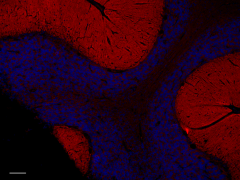
-

IHC staining of Alexa Fluor® 594 anti-SNAP-25 antibody (clone SMI 81) on formalin-fixed paraffin-embedded human cerebellum tissue. Following antigen retrieval using Retrieve-All Antigen Unmasking System 3 (Cat. No. 927601), the tissue was incubated with 5 µg/mL of the primary antibody overnight at 4°C. Nuclei were counterstained with DAPI, and the slides were mounted with ProLong™ Gold Antifade Mountant. The image was captured with a 10X objective. Scale Bar: 100 µm -

IHC staining of Alexa Fluor® 594 anti-SNAP-25 antibody (clone SMI 81) on formalin-fixed paraffin-embedded mouse cerebellum tissue. Following antigen retrieval using Retrieve-All Antigen Unmasking System 3 (Cat. No. 927601), the tissue was incubated with 5 µg/mL of the primary antibody overnight at 4°C. Nuclei were counterstained with DAPI, and the slides were mounted with ProLong™ Gold Antifade Mountant. The image was captured with a 10X objective. Scale Bar: 100 µm -

IHC staining of Alexa Fluor® 594 anti-SNAP-25 antibody (clone SMI 81) on formalin-fixed paraffin-embedded rat cerebellum tissue. Following antigen retrieval using Retrieve-All Antigen Unmasking System 3 (Cat. No. 927601), the tissue was incubated with 10 µg/mL of the primary antibody overnight at 4°C. Nuclei were counterstained with DAPI, and the slides were mounted with ProLong™ Gold Antifade Mountant. The image was captured with a 10X objective. Scale Bar: 100 µm
| Cat # | Size | Price | Quantity Check Availability | Save | ||
|---|---|---|---|---|---|---|
| 836309 | 25 µg | 128€ | ||||
| 836310 | 100 µg | 259€ | ||||
Synaptosomal-associated protein 25 (SNAP-25) is a component of the trans-SNARE (t-SNARE) complex. SNAP-25 has been reported to account for the specificity of membrane fusion, and to directly execute fusion by forming a tight complex that brings the synaptic vesicle and plasma membranes together. SNAP-25 has been shown to inhibits both ATP-dependent and independent Ca2+-triggered release of glutamate from central nervous system (CNS) synaptosomal membranes. This indicates that SNAP-25 has a role not only in the formation of the synaptic vesicle-target v- and t-SNARE complex, but also in the final neurotransmitter release.
Product DetailsProduct Details
- Verified Reactivity
- Human, Mouse, Rat
- Antibody Type
- Monoclonal
- Host Species
- Mouse
- Immunogen
- Full length, unaltered SNAP-25
- Formulation
- Phosphate-buffered solution, pH 7.2, containing 0.09% sodium azide.
- Preparation
- The antibody was purified by affinity chromatography and conjugated with Alexa Fluor® 594 under optimal conditions.
- Concentration
- 0.5 mg/ml
- Storage & Handling
- The antibody solution should be stored undiluted between 2°C and 8°C, and protected from prolonged exposure to light. Do not freeze.
- Application
-
IHC-P - Quality tested
- Recommended Usage
-
Each lot of this antibody is quality control tested by formalin-fixed paraffin-embedded immunohistochemical staining. For immunohistochemistry, a concentration range of 5.0 - 10 µg/ml is suggested. It is recommended that the reagent be titrated for optimal performance for each application.
* Alexa Fluor® 594 has an excitation maximum of 590 nm, and a maximum emission of 617 nm.
Alexa Fluor® and Pacific Blue™ are trademarks of Life Technologies Corporation.
View full statement regarding label licenses - Excitation Laser
-
Blue Laser (488 nm)
Green Laser (532 nm)/Yellow-Green Laser (561 nm)
-
Application References
(PubMed link indicates BioLegend citation) -
- Postupna NO, et al. 2014. Lab Invest. 94:1161. (FC)
- Hirano AA, et al. 2011. J. Comp. Neurol. 519:972. (WB, IHC, EM) PubMed
- Flores-Otero J, et al. 2007. J. Neurosci. 27:14023. (IF) PubMed
- Rozas JL, et al. 2012. Neuron. 74:151. (IF) PubMed
- Brinkmalm A, et al. 2014. Mol. Neurodegener. 9:53. (IP) PubMed
- Gu Y, et al. 2016. Proc. Natl. Acad. Sci. U. S. A. E922-31. (WB) PubMed
- Kabachinski G, et al. 2016. Mol. Biol. Cell. 654-68.(IF) PubMed
- Kunii M, et al. 2016. J. Cell Biol. 215:121-138. (IP) PubMed
- RRID
-
AB_2750110 (BioLegend Cat. No. 836309)
AB_2750110 (BioLegend Cat. No. 836310)
Antigen Details
- Structure
- SNAP-25 is a 206 amino acid protein with a molecular mass of 23 kD.
- Distribution
-
Tissue distribution: Mainly in the central nervous system, in neurons of the neocortex, hippocampus, piriform cortex, anterior thalamic nuclei, pontine nuclei, and granule cells of the cerebellum
Cellular distribution: Cytosol, golgi apparatus, and cell membrane - Function
- SNAP-25 associates with proteins involved in vesicle docking and membrane fusion. It regulates plasma membrane recycling through its interaction with centromere protein F (CENPF).
- Interaction
- In adult tissue, SMI 81 visualizes synapse-rich areas of brain and retina. In developing brain and cell cultures, SMI 81 reacts with neuronal cell bodies and axons. It is useful as an early marker for developing neurons in cell culture.
- Cell Type
- Neurons
- Biology Area
- Cell Biology, Neuroscience, Signal Transduction, Synaptic Biology
- Molecular Family
- Presynaptic proteins
- Antigen References
-
1. Snyder DA, et al. 2006. Cell Biochem. Biophys. 45(1):111-23.
2. Nagy G, et al. 2004. Neuron. 41(3):417–29. - Gene ID
- 6616 View all products for this Gene ID
- UniProt
- View information about SNAP-25 on UniProt.org
Related Pages & Pathways
Pages
Related FAQs
Other Formats
View All SNAP-25 Reagents Request Custom Conjugation| Description | Clone | Applications |
|---|---|---|
| Purified anti-SNAP-25 | SMI 81 | IHC-P,WB,EM,FC,ICC,IP |
| Biotin anti-SNAP-25 | SMI 81 | WB,IHC-P |
| Alexa Fluor® 594 anti-SNAP-25 | SMI 81 | IHC-P |
| Alexa Fluor® 647 anti-SNAP-25 | SMI 81 | IHC-P |
| Alexa Fluor® 488 anti-SNAP-25 | SMI 81 | IHC-P |
Compare Data Across All Formats
This data display is provided for general comparisons between formats.
Your actual data may vary due to variations in samples, target cells, instruments and their settings, staining conditions, and other factors.
If you need assistance with selecting the best format contact our expert technical support team.
-
Purified anti-SNAP-25
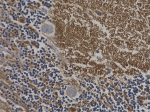
IHC staining of purified anti-SNAP-25 antibody (clone SMI 81... 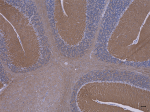
IHC staining of purified anti-SNAP-25 antibody (clone SMI 81... 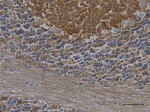
IHC staining of purified anti-SNAP-25 antibody (clone SMI 81... 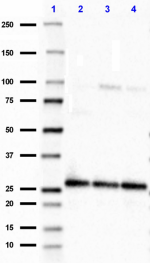
Western blot of purified anti-SNAP-25 antibody (clone SMI 81... -
Biotin anti-SNAP-25
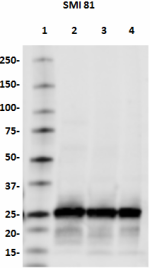
Western blot of Biotin anti-SNAP-25 antibody (clone SMI 81).... 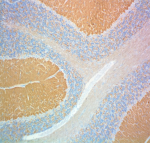
IHC staining of Biotin anti-SNAP-25 antibody (clone SMI 81) ... -
Alexa Fluor® 594 anti-SNAP-25
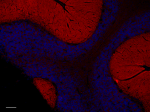
IHC staining of Alexa Fluor® 594 anti-SNAP-25 antibody (clon... 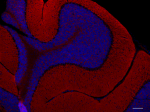
IHC staining of Alexa Fluor® 594 anti-SNAP-25 antibody (clon... 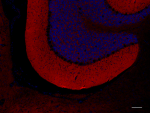
IHC staining of Alexa Fluor® 594 anti-SNAP-25 antibody (clon... -
Alexa Fluor® 647 anti-SNAP-25
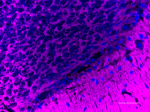
IHC staining of Alexa Fluor® 647 anti-SNAP-25 antibody (clon... 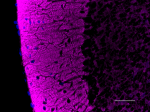
IHC staining of Alexa Fluor® 647 anti-SNAP-25 antibody (clon... 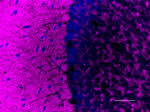
IHC staining of Alexa Fluor® 647 anti-SNAP-25 antibody (clon... -
Alexa Fluor® 488 anti-SNAP-25
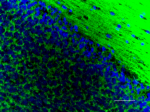
IHC staining of Alexa Fluor® 488 anti-SNAP-25 antibody (clon... 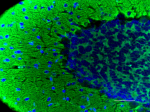
IHC staining of Alexa Fluor® 488 anti-SNAP-25 antibody (clon... 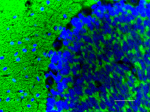
IHC staining of Alexa Fluor® 488 anti-SNAP-25 antibody (clon...
 Login / Register
Login / Register 













Follow Us